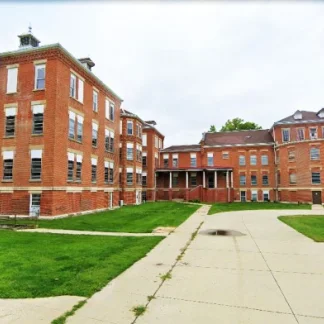Waubonsie Mental Health Center
Waubonsie Mental Health Center is a private rehab located in Clarinda, Iowa. Wau...
Located in Clarinda, Iowa, Zion Recovery offers alcohol and drug rehab services. They provide residential treatment programming for men, sober living accommodations for men, intensive outpatient treatment and outpatient treatment.
Zion Recovery provides gender-specific addiction treatment through a continuum of care that ranges from inpatient to outpatient sober living. Services include:
Residential This program is a men’s only program that provides up to 50 hours a week of treatment. Clients participate in individual therapy, group therapy, family therapy, and educational classes. They also participate in case management services and group discussions that cover topics such as anger management, relapse prevention, and healthy coping skills.
Intensive Outpatient This program is for individuals who no longer need inpatient treatment and who can partake in therapies while returning home each day. Individual therapy, group therapy, and family therapy is offered. The program meets for nine hours a week or more.
Outpatient Individual therapy, group therapy, family therapy, and self-help classes are offered. Clients meet for up to nine hours a week.
Contact us for more information: (712) 243-5091

Connect with Zion Recovery by calling their admissions team directly.
(712) 243-5091 Website Get DirectionsGroup therapy is any therapeutic work that happens in a group (not one-on-one). There are a number of different group therapy modalities, including support groups, experiential therapy, psycho-education, and more. Group therapy involves treatment as well as processing interaction between group members.
In individual therapy, a patient meets one-on-one with a trained psychologist or counselor. Therapy is a pivotal part of effective substance abuse treatment, as it often covers root causes of addiction, including challenges faced by the patient in their social, family, and work/school life.
Life skills trainings involve all the skills a person must have in order to function successfully in the world. These include time management, career guidance, money management, and effective communication. Truly successful addiction recovery is based on the ability to not only live substance-free, but to thrive. Life skills teaches the practical necessities of functioning in society, which sets clients up for success in life, and therefore sobriety.
In individual therapy, a patient meets one-on-one with a trained psychologist or counselor. Therapy is a pivotal part of effective substance abuse treatment, as it often covers root causes of addiction, including challenges faced by the patient in their social, family, and work/school life.
Life skills trainings involve all the skills a person must have in order to function successfully in the world. These include time management, career guidance, money management, and effective communication. Truly successful addiction recovery is based on the ability to not only live substance-free, but to thrive. Life skills teaches the practical necessities of functioning in society, which sets clients up for success in life, and therefore sobriety.
Life skills trainings involve all the skills a person must have in order to function successfully in the world. These include time management, career guidance, money management, and effective communication. Truly successful addiction recovery is based on the ability to not only live substance-free, but to thrive. Life skills teaches the practical necessities of functioning in society, which sets clients up for success in life, and therefore sobriety.
Waubonsie Mental Health Center is a private rehab located in Clarinda, Iowa. Wau...